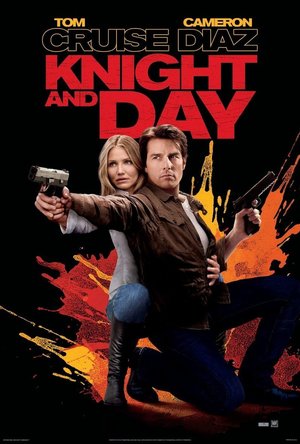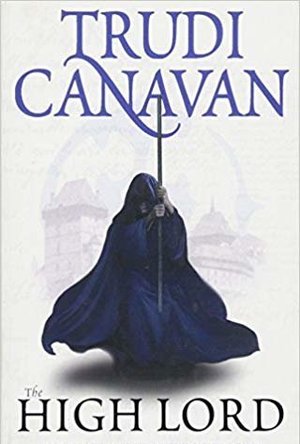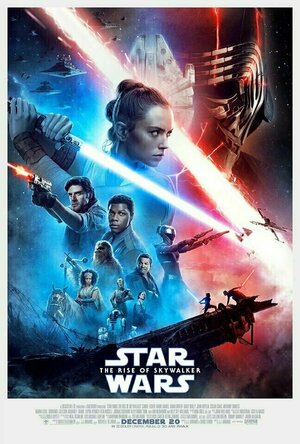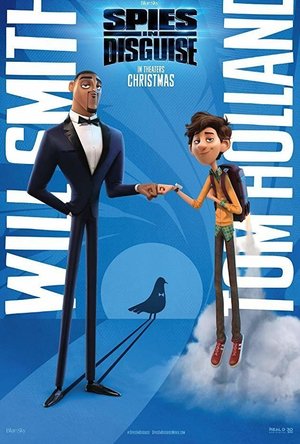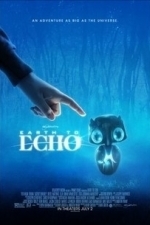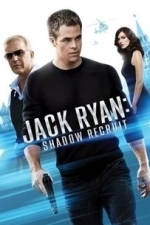Gareth von Kallenbach (980 KP) rated Knight and Day (2010) in Movies
Aug 8, 2019
The plot of the movie started out fun and original, but again, the lack of a spark between the two leads just led to disinterest. The director made ample use of what I’ll call the “invisible montage,” wherein one of the main characters is semi-conscious, and what happens to them is revealed in a series of blurred, but outlandishly crazy situations only a few seconds in length and increasing in surrealism. This was a clever, if overused technique, but oftentimes the entire movie felt like longer episodes of these montages, with little reason for each to be happening other than to fill the quota for requisite action sequences. Because of some poor foreshadowing in the beginning of the film, even the finale became extremely predictable and had no weight.
Tom Cruise, playing the bizarrely comic spy Roy Miller, manages to pull his weight in his role. Cruise’s special kind of natural crazy is actually an advantage to the character he is playing. His unpredictability and his utter charm kept me, at the very least, entertained throughout the film.
Cameron Diaz, playing clueless midwesterner June Havens is obviously the weak link here. She can’t seem to keep up with Cruise’s character on screen, and aside from a few cutesy moments in the film, is outclassed by her co-star, and often by members of the supporting cast as well. Diaz doesn’t have a reputation for doing in-depth character studies of her portrayals, but the very least she could do is drop the same confused face she uses for most of the movie.
Together, Cruise and Diaz lack the chemistry that would have made this a decent movie without forcing the audience to shut off the emotional parts of their brains. In fact, the key make-out scene between the two of them was so clichéd as to be boring. Looking back at the entire movie, I believe that after their first few minutes together, the rest of their interactions just felt forced.
As for the rest of the cast, I have no special complaints or accolades, but I would like to single out one individual, and say that I would have loved to see more of Peter Sarsgaard. It’s immediately obvious that knows what he is doing on screen, and he deserved a much larger role than the one given to him.
In summary, Knight and Day is definitely worth skipping out on. Wait a week and soon enough some real 4th of July action blockbusters will be coming out. We’ll be sure to let you know which ones are the real deal and which ones are the duds. It’s just too bad this one was a dud, because it definitely had a lot of potential.
The Bandersnatch (199 KP) rated The High Lord (Black Magician Trilogy, #3) in Books
Nov 7, 2019
My opinion of this book was that of a decent conclusion to a good storyline. I do think however that the love storyline between Sonea and Akkarin is a little cliché. Otherwise It was a decent book. I have to admit the fighting between magicians would make a decent movie montage.
Born in Kew, Melbourne Australia on October 23rd 1969 Trudi Canavan spent her formative years being extremely creative in the suburb of Ferntree Gully. Canavan decided to become a professional artist and went to the Melbourne college of Decoration achieving an advanced certificate in promotional display as well as an award for the highest aggregate mark in art subjects in 1988.
During the early 1990's Canavan worked for the Australian magazine Aurealis (a magazine for Australian science-fiction and fantasy work) as well as starting her own business The Telltale art which specialised in graphical design services. By working for Aurealis Canavan was able to write in her spare time.
In 1999 Canavan managed to win the Aurealis award for best fantasy short story with whispers of the mist children and cementing her work further with the release of the Magicians Guild in 2001 (book one of The Black Magician trilogy) the successive books The Novice (2002) and The Black Magician (2003) brought Canavan both widespread acclaim and nominations for both the Aurealis best Fantasy novel and Best Novel Ditmar Category. All three books ended up in the top ten Science Fiction books for Australia.
Canavan's second Trilogy Age of Five was also well received with the first book reaching No3 in the Sunday Times hardback fiction best sellers list and staying in the top ten for six weeks. Canavan went on to write a prequel/sequel to the black magician trilogy known as the magicians apprentice in 2009 this was followed by the traitor spy trilogy which was released between 2010 and 2012. Trudi Canavan now holds a vast array of written works under her belt which can be split into three book series and a group of short stories.
My opinion of Trudi Canavan is that she is a very dedicated writer. Excellent with detail and writing a strong character and story. I definitely respect her work ethic since she is both a writer and a graphic designer. I definitely would love to talk with her and have a discussion about books and writing in general. She is up there with Prof J. R. R. Tolkien, George R. R. Martin and Lewis Carroll in my books.
And there you have it a book for all the ages, definitely under the banner of Quality reading, I am positive this trilogy could end up being the NEXT it thing if they were ever made into a Movie Trilogy.
Darren (1599 KP) rated Star Wars: Episode IX - The Rise of Skywalker (2019) in Movies
Dec 19, 2019
Story: Star Wars: The Rise of Skywalker starts as the resistance led by General Leia (Fisher) has been regrouping with Finn (Boyega), Poe (Isaac) and C-3PO on their own mission, Rey continuing her training and Kylo Ren (Driver) is continuing his desire for power by going in search for Emperor Palpatine who has been waiting for his chance to return to power.
As the truth about Rey’s past comes to light, the destiny of the characters will come through in the epic battle that will be all or nothing for the galaxy’s future.
Thoughts on Star Wars: The Rise of Skywalker
Characters – Rey is continuing her training in the art of a Jedi, she is still learning her place in the force, she starts to suffer visions which will fill in moments from her past, including glimpse of what happened to her parents. She is still communicating with Kylo, she will finally get to learn the truth and take her place in the history of the galaxy. Kylo Ren is searching for complete power, a force which will see him take to victory, he makes the deal and now he will look to gain all the control of the galaxy once and for all. Finn continues to learn more about the other victims in the galaxy, learning how he could lead them in the future, while Poe is still learning his place in the war, with his past being used to unlock clues along the way.
Performances – We have had the four newer members of the Star Wars universe taking the centre stage this time, nobody does anything wrong, they give the safe performances without doing anything overly outstanding like we saw in the final chapter of a long awaited saga.
Story – The story here follows the latest attempts for the resistance looking to put an end to the first order, only to learn of a bigger threat to the whole galaxy. The story here is the third part of the latest saga, after many people didn’t like the Last Jedi’s choices, the seem to spend most of the film trying to erase most of what wasn’t liked, we have twists that just seem completely out of nowhere in a bad way, rather than ones that are placed together well. While there are weaknesses here, we could well have some nice developments between Rey and Kylo, which is the highlight of the story, otherwise it just ends up being the same as most Star Wars, feeling very safe, with the ideas that we get plenty of bait related moments, which seem like they want to have a big impact, only they didn’t let the impact last long enough.
Action/Sci-Fi – The action in the film is big, it will entertain even if it does feel like more of what we have seen before. We know this franchise is the backbone of the sci-fi genre and like nothing before and this never lets us down.
Settings – The film uses the different planets to give us difference environments which is all nice, we have seen it a lot before, but it works for the film.
Special Effects – The effects in the film do come off looking almost flawless, like always.
Scene of the Movie – Rey vs Kylo on water.
That Moment That Annoyed Me – The Spy
Final Thoughts – This is an entertaining movie that might have flaws in the story, it will complete the saga well.
Overall: Safe conclusion.
Emma @ The Movies (1786 KP) rated Spies in Disguise (2019) in Movies
Jan 11, 2020
Lance is the world's greatest spy, catlike reflexes, excellent deduction skills as well as suave and sophisticated... all the things you'd expect. He's the golden boy of the agency and is ready for another pat on the back and some admiration. But it isn't his lucky day, the device he retrieved is missing from the case and now he's under investigation. He knows that he's innocent but there's damning evidence against him, his only hope is to clear his name, and the only way to do that is to escape the agency and track the real culprit down. His next problem, who can he trust?
This really is Bond for kids, everything is fantastically reminiscent of it, from his slightly too cocky demeanour to the brilliant opening credits. It's a pretty solid film, there's nothing much to dislike. It's essentially Bond mixed with Cloudy With A Chance Of Meatballs... what's not to love about that?!
I have to wonder about opening kids films this way, it seems to be very common at the moment. The lead needs to have a tragedy to get through the movie and have their moment of realisation. Playmobil did it in a much less subtle way, as did Wonder Park to some extent.
There aren't any real issues with the voice acting, though I do wonder about the choice of Ben Mendelsohn paired with his animated character, the two don't really match as well as the others. But that's not a deal-breaker.
The animation style is very clean and easy to watch. There are before and after shots of some scenes that show what the lighting guy does, it's really interesting to see. After having brought this topic up after seeing Klaus it was nice to see some of the "hidden" parts of animated films. The effort is immense.
Music is used well in parts of the film, and my favourite has to be the "romantic" portion towards the end, very amusingly set up and clearly well thought out.
Walter, our inventor, really does have the sort of imagination that would get him hired by Chester V. My favourite invention was probably the glitter distraction, I believe this may already exist though as it appears to have been deployed in my home over Christmas. This may be the only major continuity note... once Lance brushes the glitter off we don't see any little specks again, completely unrealistic!
There are a lot of great sequences during the film and the action moves it along quickly, add in the humour from the pigeons and all the gadgets and you get something really fun. I will definitely watch this again when it hits streaming. My score may seem a little off considering I didn't hate anything, the reason for this is that it's essentially a lot of other films mixed together. As I said, we've got Bond and Cloudy With A Chance Of Meatballs with an assortment of action movies and Home Alone 2 thrown in for good measure, which made it enjoyable but not instantly rewatchable.
Originally posted on: https://emmaatthemovies.blogspot.com/2020/01/spies-in-disguise-movie-review.html
Gareth von Kallenbach (980 KP) rated Earth to Echo (2014) in Movies
Aug 6, 2019
Earth to Echo sees three childhood friends Alex (Teo Halm), Tuck (Brian “Astro” Bradley) and Munch (Reese Hartwig) as they deal with moving away from each other because their neighborhood is being torn down to make way for a new freeway. Shortly before the final move date, something weird starts happening to their phones, and it turns out that a map is being fed into them. On their last night together as a group, they decide to pursue the map, not knowing the great adventure they have waiting for them, or the dangers that lie ahead. Of course, without any spoilers that are not already in the commercials/trailers, they find an alien life-form in a small owl-like creature. The creature is hurt and trying to get off planet, and the kids decide to help.
Overall the main story-arch of Echo was great. While a little unbelievable in this day and age that an established neighborhood is going to be uprooted for a new freeway (at least to me), the story was solid and things are not exactly as they seem. All three boys, and a love interest Emma (Ella Wahlestedt) did an excellent job in their performances, and you forget that the actors are actually the age of the children they are portraying. The visual effects were awesome, and the score was spot-on. The film was very enjoyable and knocked it out of the park in these aspects.
Now, this movie unfortunately suffers from its cinematography. The movie is viewed through cameras that are “controlled” by the characters themselves. Think Chronicle. Tuck is the camera-fanatic of the group and we see the adventures of the friends through his GoPro camera, spy glasses and handheld camcorder, as well as through the cell phones of the various characters. There is nothing wrong with this method of filming, and in fact could have worked really well, especially as it does play into the plot with our little alien friend. However, this filming technique was not used appropriately. There was just way too much “shaky-cam”. In fact, every single person in my party became nauseated by the overuse of the film style. While two in my group were able to overcome the sick feeling, the rest of us could not shake it. There are several things that could have happened on our part to prevent this (i.e., sitting farther back in the theater), but many will not know this going in and it could be a bane to their movie-going experience.
It really is too bad that the camera-work had this much effect on the film. As I said, overall it was a very enjoyable movie. My suggestion is to sit toward the back of the theater, or even just wait until it comes out on Blu-ray/DVD/Digital. I think that being able to see it on a smaller screen, or sitting in the back of theater, will allow you to frame the film and not be so submersed into it. This will prevent the nausea that my party, as well as other moviegoers I heard expressing the same concern. I will definitely be picking it up when it is released for purchase, despite my experience in the theater.
Gareth von Kallenbach (980 KP) rated Jack Ryan: Shadow Recruit (2014) in Movies
Aug 6, 2019
Chris Pine stars as the famed Jack Ryan in this reboot of the character. We open the movie with Ryan
attending school in London on the day many won’t soon forget: September 11, 2001. The events
this day push Ryan into enlisting in the Marines and we join him 3 years later where we see Ryan in
a helicopter with some brothers-in-arms. It doesn’t take long for the helo to be shot down, but not
without Ryan becoming a hero. After extensive rehab from a broken spine, Mr. Ryan is approached by
Thomas Harper (Kevin Costner) to join the CIA as an analyst.
This intro to the movie was short. But what lacks in length it makes up for in the eloquence in which
it delivers the back story for Jack Ryan, thus setting up a whole new franchise and getting new viewers
ready for the ride. After this intro, we flash forward 10 years later to find Ryan working on Wall Street,
but he’s undercover and is an analyst for the CIA. He is with his one-time physical therapist, Cathy
Muller (Keira Knightley), and he discovers the details of a planned economic attack against the USA.
It isn’t long before he is whisked away to Russia to do some wet work, and he bumbles into the life
of a field agent facing off against the mastermind of the villainy in the film, Viktor Cherevin (Kenneth
Branagh).
Some may find that the movie lacks the quick-paced, non-stop action that we have seen from spy
movies these days (including the famous 007), but it does keep a good pace and puts an intelligent story
line on the screen and actually entices the audience to think, all the while including some action for the
adrenaline-junkies.
Pine plays a very believable Jack Ryan. He portrays a character that is more closely linked to Tom
Clancy’s original stories and vision for the character than even Harrison Ford did in Patriot Games (which
I thought was an excellent movie). He nailed the bumbling analyst-turned-field-agent in such a way that
you’d believe it was really his personality. They explain his ability to handle himself with the military
background so expertly set up at the beginning of the movie. Adding Costner to the cast was a stroke
of genius as he plays the mentor/superior part extremely well, but he wasn’t in the film so much as
to distract from the focus of Ryan. Branagh (who also directed the film) played an excellent Russian
adversary to Ryan, who was nothing short of a genius in the way he delivered his character’s stoic
responses and reactions.
If I had to name one gripe with the movie, which believe me was no small feat, it was the Cathy
Muller character. Don’t get me wrong, the character was amazing and Knightley did an admirable job
portraying her. I just felt that she seemed to accept things that most people would question a little too
quickly, and without any reservation.
Other than that, the movie rocked. The action scenes were gripping and the actual story-line was
intelligent. The best thing is that story was plausible. It was not over the top or wildly impossible in the
real world. The scary part is just that. The plot of this movie could actually happen. I would definitely
recommend checking it out in theaters, and it most certainly made my “gotta buy it on bluray” list.

Textkraft Lite - easy & fast writing
Productivity and Business
App
Improve your writing with Textkraft! Textkraft is a professional writing app. The magic about it...

Kick Ass Commandos
Games and Entertainment
App
50% OFF LAUNCH DISCOUNT! Lock and Load! It's time to Kick Ass. Grab your machine-gun, flamethrower,...

IP Cam Viewer Pro
Utilities and Productivity
App
Remotely view, control and record your IP camera, webcam, DVR and NVR using your iOS device. ...

Transformers Rescue Bots: Disaster Dash - Hero Run
Entertainment and Education
App
Gather the Rescue Bots, rescue citizens and save the world with epic DinoBots! Budge Studios™...
